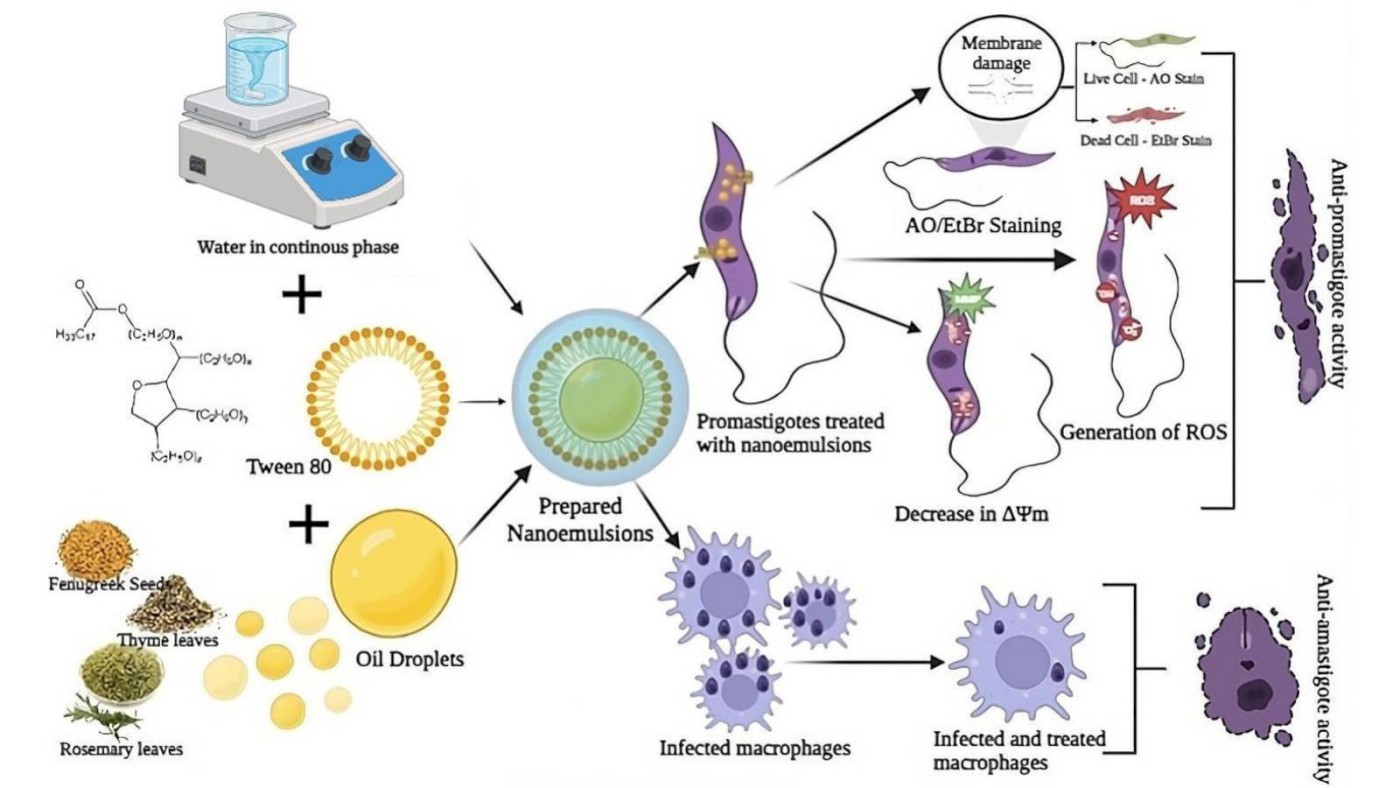25 June 2025
Leishmaniasis Finds a New Cure in Plant-Based Essential Oil Nanoemulsions

Visceral Leishmaniasis (VL) is the most severe form of leishmaniasis which is caused by the protozoan parasite Leishmania donovani. VL is a life-threatening parasitic disease transmitted through the bite of phlebotomine sandflies. It primarily affects the liver and spleen. Despite the availability of drugs like Amphotericin B, current treatment options face substantial challenges, including drug resistance and prohibitive costs.
In line of these limitations, a team of researchers at Ahmedabad University explored a novel, plant-based therapeutic strategy that integrates essential oils with nanotechnology to target the Leishmania parasite.
Harnessing the power of plants and nanoscience, the team studied the essential oils from fenugreek, thyme, and rosemary, known for their antimicrobial and anti-inflammatory properties. These oils displayed anti-leishmanial activity in prior studies but showed instability and poor bioavailability in their natural form.
To address this, the researchers, comprising alumna Jhanvi Patel, doctoral student Kikku Sharma, alumna Ramesh Chaudhari, and faculty members Professor Ashutosh Kumar and Professor Souvik Sengupta from the University's School of Arts and Sciences, developed nanoemulsions (ultra-small, stable droplets that encapsulate these oils). These nanoemulsions enhance the oils' stability, allowing higher bioavailability and improving cellular delivery, especially in immune cells like macrophages, which often shelter the parasite.
The essential oil nanoemulsions were stabilised using Tween 80 (the ingredient that acts as a surfactant and emulsifier) and characterised using advanced technologies such as Dynamic Light Scattering (DLS), Fourier Transform Infrared Spectroscopy (FTIR), and Transmission Electron Microscopy (TEM). The results confirmed the formation of small, stable particles with a negative surface charge, suitable for penetrating cell membranes and improving drug delivery.
Further laboratory studies showed that the nanoemulsions exhibited selective toxicity against Leishmania donovani promastigotes, effectively targeting the parasite. They induced oxidative stress and mitochondrial dysfunction in the parasites, leading to cell death. Additionally, the formulations reduced the intracellular parasite load within infected macrophages in a dose-dependent manner. Additionally, the nanoemulsions maintained a safety profile, showing low toxicity to host immune cells.
Among all formulations, the fenugreek oil nanoemulsion (FNE) displayed the most substantial antileishmanial effect, outperforming the unformulated oils and Amphotericin B treatments. The study also shows that crucial oil components, including trigonelline, thymol, and eucalyptol, can bind to the parasite's aquaglyceroporin protein, thus gaining access into the parasite. This computational insight supports the biochemical findings and validates oils' antiparasitic activity.
Compared to traditional therapies such as Amphotericin B, the current plant-based treatments offer cost-effective and less toxic alternatives. The study Antileishmanial activity of Fenugreek, Thyme, and Rosemary essential oil nanoemulsions - a comprehensive study with mechanistic insights, published in Elsevier's Journal of Molecular Liquids offers a new approach in the fight against Leishmaniasis by integrating natural medicine with advanced drug delivery systems. The further integration of merging nanotechnology, cell biology, and computational modelling promises effective and safer treatments in the future.



